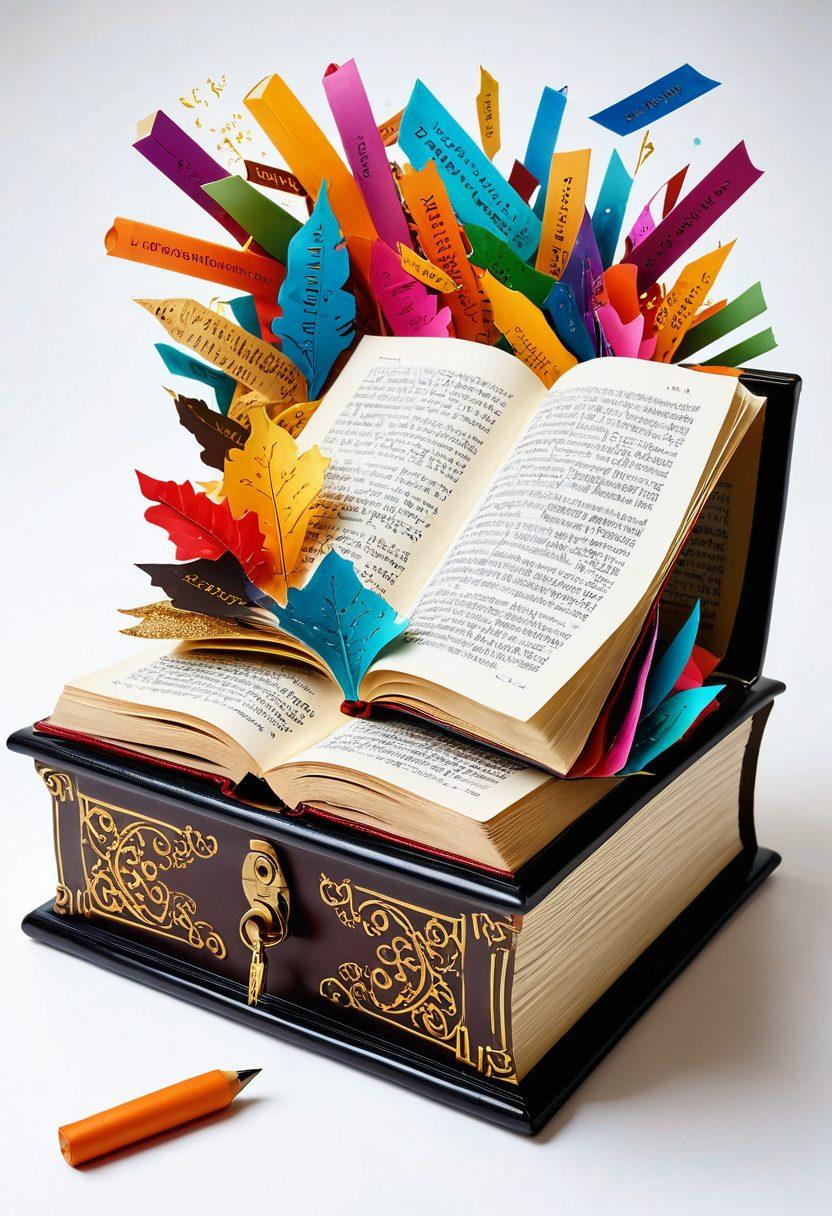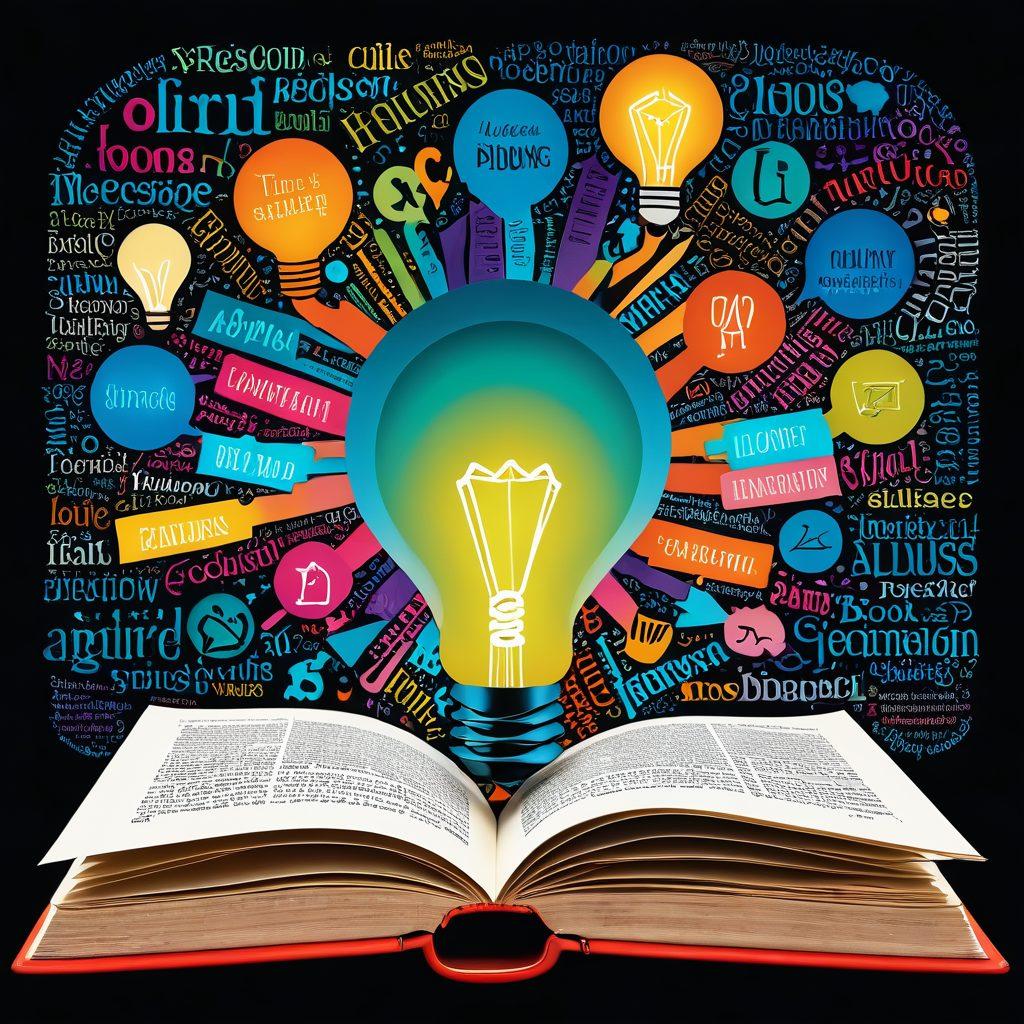Unlocking the Power of Language: A Comprehensive Guide to Glossaries, Terminology, and More
Have you ever stumbled upon a word that changed the way you understood a sentence? Perhaps it was a moment where you thought, 'I wish I had a better grasp of terminology.' This journey into the world of language fundamentals isn’t just an academic exercise; it's an invitation to deepen your understanding through glossaries and other linguistic resources. Language is our primary tool for communication, and mastering its fundamentals can empower us to express ourselves with clarity and precision. Whether you are a student, a writer, or simply a lover of words, a comprehensive grasp of nomenclature is crucial for effective communication. So, let’s delve into the rich world of glossaries and terminology together!
Imagine it's a chilly evening, and you're cozying up with a good book. Suddenly, you encounter a complex term that sends you scurrying for a dictionary. This is where your word reference tools come into play! A glossary serves as a powerful companion in any text, unraveling the meanings behind intricate jargon and helping you navigate the nuances of word usage and syntax. Embrace the phrasebook as your sidekick in this adventure, as it holds the secrets to mastering the nuances of language learning. Have you ever considered how understanding one word better can enhance your critical thinking skills?
Consider the journey of words through time—where they originate and how they morph. Etymology offers fascinating insights into the development of terms; it unveils stories of borrowed expressions, cultural exchanges, and linguistic evolution. Take, for example, the word ‘communication.’ Its roots are deeply embedded in the Latin word ‘communicatio,’ which emphasizes sharing and being part of a community. By exploring the etymology of terms you encounter, you not only enhance your terminology knowledge but also enrich your text analysis skills. What if each word you dissect opened doors to new understanding?
As you embark on this quest of language mastery, don’t overlook the power of a bilingual dictionary. It is not merely a reference guide but a weapon in your arsenal for understanding dual meanings and contexts. Such tools can be bridges between cultures, providing a richer context for semantic understanding. Picture this: conversing effortlessly in another language, seamlessly switching from one to the other depending on your audience. This is where dedication to learning and utilizing glossaries pays off magnificently—what would you like to express next?
Navigating the vast sea of words can be daunting, but language tools can guide you through. From writing resources that elevate your prose to linguistic resources that deepen your comprehension, there is a treasure trove waiting for you. So, when you flip through a textbook or skim an article, pause for a moment to appreciate the power of terminology. Mastering these fundamentals not only makes you a better communicator but also a lifelong learner. The question remains: Are you ready to unlock the potential of the words that weave our world together?
From Syntax to Semantics: Navigating the Key Language Resources for Effective Communication
In the vast ocean of language, navigating through the waves of syntax, semantics, and terminology can sometimes feel overwhelming. Have you ever found yourself deciphering a complex text, searching for a phrase that just won’t come to mind? Or maybe you’ve faced the daunting prospect of communicating in a language that feels entirely foreign? That’s where linguistic resources come to our rescue. From glossaries and bilingual dictionaries to comprehensive phrasebooks, this blog will delve into the essential tools that not only enhance communication skills but also enrich our language learning journey. So, let’s unlock the power of language together!
Consider this: every word we use has a history, a journey that can be traced back through time. Etymology is more than just a fancy term for word origins; it’s a deep-dive into the stories and transformations of language that shaped human communication. Imagine picking up a word and exploring its roots. It’s like holding a piece of history in your hands. For instance, did you know the word 'champagne' comes from the Latin 'campania'? This curious fact highlights how interconnected our language is. With a solid reference guide at your fingertips, you can unlock an entire world of meanings and connections that enhance your understanding and appreciation of the language.
Now, let’s talk about terminology and nomenclature. Have you ever stumbled through a specialized text, feeling lost amidst the technical jargon? Whether it's in science, law, or literature, a well-structured glossary is essential to demystifying complex concepts. Imagine having a comprehensive word reference that not just defines but also illustrates usage in context. By honing in on terminologies embedded within a field, you’re not just learning the language but also engaging in critical thinking. You become a part of the conversation, able to articulate ideas with clarity and confidence. This ability isn’t just for academics; it’s for anyone looking to elevate their communication skills in any field.
Why stop at just the basics? Let's make language learning an adventure. Incorporating language tools like online platforms and literature into your routine can be both fun and effective. The world is full of educational blogs and resources that provide tips on foreign phrases or engage in text analysis of popular novels. If you’re struggling with syntax, many apps can offer exercises tailored to your level. Imagine solving a syntax puzzle like a crossword - how satisfying would it be to finally nail that tricky sentence structure? By integrating such activities into your daily life, language learning transforms from a chore into an exciting quest.
Lastly, never underestimate the power of a good phrasebook! This often-overlooked language resource can become your best travel buddy or an indispensable tool in business communication. It’s like having a mini-dictionary that fits easily in your pocket yet opens doors to new cultures and experiences. So whether you’re ordering a croissant in Paris or negotiating a deal in Tokyo, knowing the right phrases can make all the difference. Remember, effective communication isn’t just about knowing the language; it’s about connecting with others and being present in the moment. So, what’s stopping you from diving into this ocean of words?
Elevate Your Language Skills: Exploring Glossaries, Etymology, and Word Usage for Learning Growth
In today’s fast-paced world, mastering language is no longer just an option—it’s a necessity. Whether you’re a student, a professional, or simply a curious individual, enhancing your communication skills and understanding of language can elevate your interactions and expand your horizons. Have you ever stumbled over a term, only to feel a wave of frustration? This is where glossaries and other linguistic resources come into play, transforming uncertainty into clarity. Let’s delve deeper into how glossaries, etymology, and word usage serve as the backbone of language learning that can shape your thinking and writing abilities.
Imagine you’re reading a complex article filled with intricate terminology. The moment you come across a word you don’t understand, your reading flow halts. This is precisely why a well-curated glossary is an invaluable asset. A glossary acts as a comprehensive reference guide, offering definitions and explanations that demystify convoluted terminology. It’s like having a trusty phrasebook in your pocket, ready to support you in your language journey. Just think about it: how much smoother would your reading and writing experience be if you had access to a glossary that catered specifically to your interests?
The magic of language doesn’t end with definitions; it’s rooted in etymology—the study of word origins. Etymology breathes life into words, revealing their historical journey and how they evolved. When we dive into the etymology of a term, we often discover connections we never knew existed, opening the door to a richer understanding of semantics. This level of word analysis can be so engaging that it transforms the way we perceive language. So, next time you come across an unfamiliar term, don’t just gloss over it; explore its origins and watch as your appreciation for language deepens.
But let’s not stop there. The beauty of language also lies in syntax—the arrangement of words to create meaningful sentences. By utilizing language tools such as bilingual dictionaries, aspiring linguists can grasp the nuances of phrase construction in different languages. This enables learners to increase their critical thinking skills, as they reflect on structure and meaning. How many times have you struggled with sentence formation? By investing time in understanding syntax and proper word usage, you’ll pave the way for clearer, more effective communication. Language is not only a tool for expressing thoughts but a bridge connecting minds and cultures around the world.
Lastly, the world of educational blogs offers a treasure trove of writing resources that can supercharge your language acquisition journey. They present practical tips on word reference and offer insight into the latest trends in language learning. By following the right resources and consistently engaging with terminology, you’ll not only enhance your vocabulary but also boost your confidence in using language adeptly. Remember, mastery of language is not an event, but a continuous journey, one that unfolds with each new word you learn and each concept you grasp. Are you ready to take the leap into the rich world of language?


